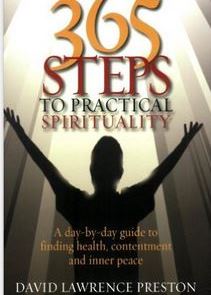One of the greatest statements on living simply is to be found in E. F. Schumacher’s book, ‘Small Is Beautiful: A Study of Economics As If People Mattered’.
One chapter, ‘Buddhist Economics,’ points out that consumption is not the purpose of life but merely a means to an end. Our aim, he argued, ‘should be to obtain the maximum well-being with the minimum of consumption.’
Using clothing as an example, he suggested that the most economically efficient approach would be to provide warmth, comfort and an attractive appearance for everyone, with the least amount of effort and minimum destruction of natural resources. Collecting a wardrobe full of clothes we hardly ever wear simply doesn’t make sense. We could toil less and have more time for other pursuits. This would also put less pressure on the environment.
When we go for maximum well-being with minimum consumption, we help to make the world a kinder, gentler place, and it doesn’t mean depriving ourselves because we’re gaining much more than we lose, including time for ourselves and our loved ones.
Good work
Another E.F. Schumacher book, ‘Good Work,’ spells out the two main purposes of work – to provide for our needs and, just as importantly, to express our gifts and powers. This is equally important because if we work only for money, we never be prosperous regardless of what we earn.
If your work is unfulfilling, change it. Find work that you enjoy, uses your talents and allows you to make your best contribution. When you do what you love and put your heart and soul into it, providing it benefits others and not just yourself you will be taken care of according to Spiritual Law.
©David Lawrence Preston, 1.2.2017
Follow me on Facebook and Twitter @David_L_Preston
How to Books, 2007


Leave a Reply